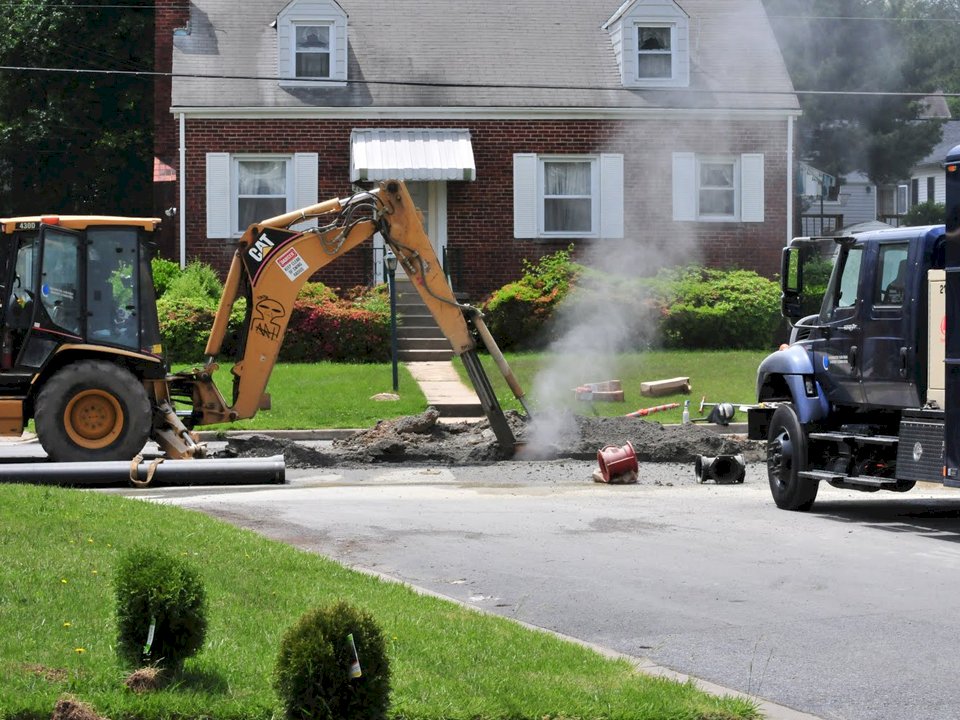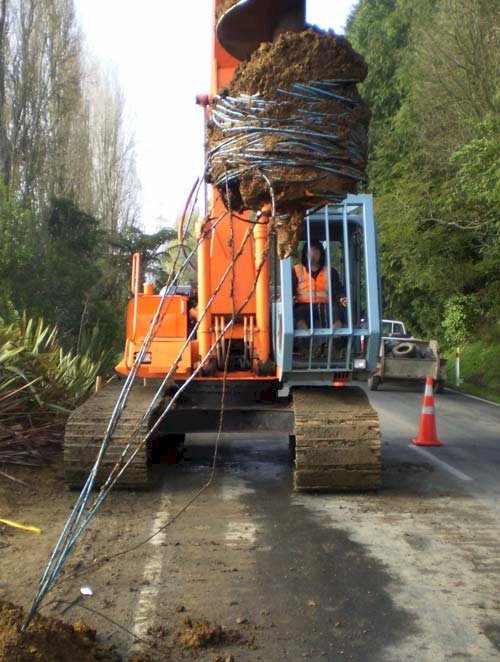Excavation Safety Guidelines
Ensuring that everyone is working safely around underground facilities is key to damage prevention. Below, we outlined some of the main factors to consider when working near each type of utility and what to do if a damage occurs. It is important to keep yourself and your crew safe so that everyone can go home at the end of the day.
General Safety at the Worksite:
- Always verify marking instructions before beginning your work by using a copy of the Locate Ticket to confirm the markings are correct and match the ticket.
- Take photos or video to document the markings before you start to dig.
- Do NOT excavate outside your requested area of work.
- If you are going to dig outside of the marking instructions, you MUST call Diggers Hotline for a new locate request that will cover the expanded dig area.
- Never assume a site is clear if you see no marks. Above ground indicators can give clues as to what may not have been marked at a job site.
- Contact your local utility or utility locator with any questions or concerns of confusing or missing locate markings. It is always a good idea to request additional information if the markings are not clear.
- Use hand tools only when digging closer than 18 inches to an underground line where the location has been marked with paint or flags. You may use powered digging equipment when digging further than 18 inches from the marked location of an underground line. The buffer zone in Wisconsin is 18 inches.
Natural Gas & Petroleum Pipelines:

- Transmission pipeline companies generally require a company representative to be on site when digging near a pipeline. This is referred to as a Watchdog or Standby.
- The facility owner MUST be notified any time it’s suspected that damage has occurred to a facility. It’s the law. Even something as minor as a dent or scratch can cause facility failure down the road.
- If contact has been made with a natural gas or flammable liquids facility, be familiar with the warning signs of a leak, which include:
- Smelling like rotten eggs or oil. Keep in mind that natural gas transmission lines may not be odorized.
- Hearing a hissing, blowing or roaring sound.
- Seeing a white cloud or fog, water bubbling, discolored or dead vegetation, flames or vapors.
- In the case of a petroleum product leak, you may see an oily sheen or a pool of liquid.
- Remember that natural gas is lighter than air and will quickly dissipate into the atmosphere. Other petroleum products found in pipelines are heavier than air and will collect in low areas.
- Even a minor hit can cause unexpected exposure and damage. With this in mind you should:
- Always report any and all nicks, dents, scratches, or cut tracer wires.
- Never stop a leak or attempt to fix a leak yourself. Static electricity on the pipe could cause ignition.
- Never bury a leak because natural gas can migrate underground and find a remote ignition source
- Never operate any pipeline equipment, including turning valves. Turning a valve can cause problems up or down stream of your location.
- If there is an escape of natural gas or flammable liquids you MUST do the following:
- Eliminate all ignition sources by immediately turning off the equipment, cellphones, lighters, cars and trucks.
- Immediately evacuate the area and stay up wind. Do not start any vehicles to leave the area as this could become an ignition source.
- Call 911 from a safe location and notify the facility owner as soon as possible.
- Utility company contact information can be found on pipeline marker posts located along roadways.
- The contractor is responsible for securing the area and ensuring the safety of the crew and public, until emergency responders arrive.
Electric Lines:

- Treat all downed lines like they are live. Insulation may contain pinholes or flaws that can cause shocks.
- When a line flashes and stops, it does not mean it is de-energized. Lines can become re-energized at any time.
- If a piece of equipment comes in contact with an energized facility while the operator is on it, it is recommended that the operator try to remove the machine or equipment. Only do this if it can be safely disengaged without causing additional damage or risking injury or death.
- If the equipment cannot be safely removed from the energized cable, you must stay on the equipment. You are energized, but safe like a bird on a wire.
- Call the Electric Utility immediately to get the current turned off.
- Warn others to stay away from the area as the ground and equipment are energized.
- If you are unable to stay on the equipment due to fire:
- Jump clear of the equipment, making sure to land with both feet together, and never touching both the equipment and the ground at the same time.
- Shuffle away keeping the feet together. Never go further than toe-to-heel apart.
- Doing this will keep you from being in more than one voltage ring at a time and avoid electrocution.
Fiber Optics & Communication Lines:
- Communications lines can be buried just below the surface. Never assume they are deeper than you are digging.
- Damages to communication lines can take out cellphone and 911 service along with internet connections.
- Immediately report any damaged lines to the facility owner so they can initiate the repair process.
- The cost to repair a fiber optic line is much greater than repairing other communications lines. Many times they cannot be repaired and must be replaced.
- Fiber optic lines are becoming more popular, especially in rural areas and with home businesses. Damages can cause costly delays in work, not only for you and your crew, but also business owners. The cost of repairs and any 3rd party claims add to the total cost of the damage.
- Never look into the end of a damaged fiber optic line. Laser lights can cause eye injury.
Water & Sewer Lines:
- Water under pressure can cause serious injury.
- Just slight damage to high-pressure water lines, like shovel scratches or nicks, can cause pipeline breaks.
- Wastewater contains bacteria that can be a significant health risk.
- Sewer gas is flammable. Avoid open flames and other ignition sources.
- Do not close valves to stop the flooding. Closing the wrong valve can affect fire flows.
